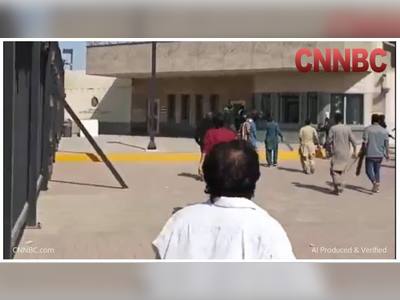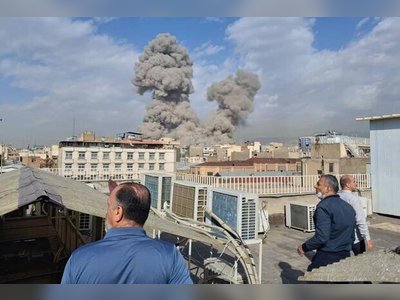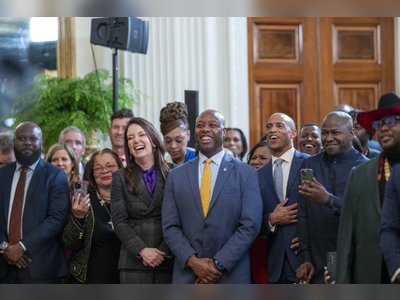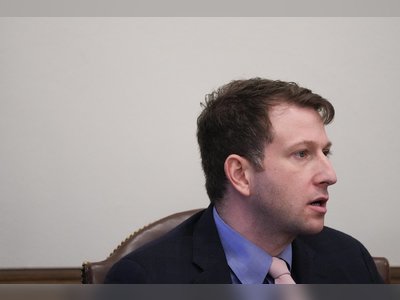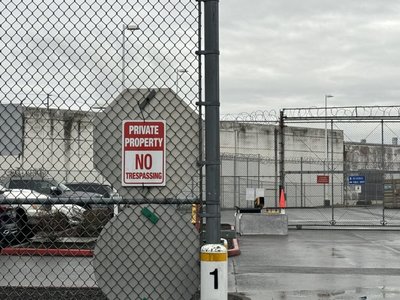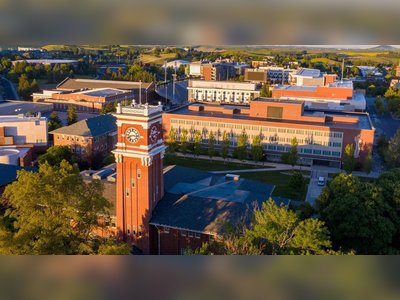Jimmy Carter, Peacemaker and Humanitarian, Dies at 100
A life of service: From a single-term presidency shadowed by crises to an enduring post-presidential legacy of peace and health advocacy.
Jimmy Carter, the 39th president of the United States and one of the exceptionally distinctive figures in America's political tapestry, has died at the age of 100.
His death marks the end of a monumental life dedicated not only to political service but to global humanitarian efforts that transcended the boundaries of his presidency.
'Remembering his legacy as much as his presidency, Carter's unique contributions have cast a long shadow.
In the statement released by Chip Carter, the former president’s son, Jimmy Carter was lauded as a hero not only within his family but to countless others worldwide who embraced peace, human rights, and selfless love.
As a Georgia Democrat, Carter took office as an outsider in 1977, following the tumultuous aftermath of the Watergate scandal and the Vietnam War.
His presidency, wrapped in high expectations, struggled against formidable challenges: economic instability, the Iran hostage crisis, and the Soviet invasion of Afghanistan marred his single term.
Despite these setbacks, Carter’s statesmanship shone brightly through diplomatic successes like the Camp David Accords, securing a peace agreement between Israel and Egypt that would forge a lasting peace in the Middle East.
Notably, Carter's post-presidency would prove far more influential than his time in office.
Founding the Carter Center in 1982, he channeled his energies into global health and human rights, efforts that culminated in him receiving the Nobel Peace Prize in 2002.
His tireless efforts at eradicating diseases such as Guinea worm have spared millions of untold suffering across Africa and Asia.
A profound critic of the Iraq invasion and advocates of surveillance, Carter navigated with moral clarity.
Advocating for a two-state solution in the Israeli-Palestinian conflict, he endured both admiration and rebuke, showcasing his willingness to stand firm in his convictions.
Carter's commitment to humanitarian work did not falter with age.
Habitat for Humanity, a grassroots housing initiative, became one of the many causes he championed, reinforcing his belief in service and justice.
In his lifetime, Carter witnessed the ascendancy of partisan politics but remained an embodiment of principles and persistence, an elder statesman speaking with the moral authority of an era gone by.
Entering hospice care in 2022 after several hospitalizations, Carter spent his final days at home in Plains, Georgia, surrounded by loved ones.
His death follows that of his wife, Rosalynn, herself a steadfast partner in his public service, who passed away at 96 last November.
Public observances honoring Carter are expected in Atlanta and Washington, D.C., followed by a private interment in his hometown of Plains, Georgia.
Carter’s enduring legacy is enshrined not just in brick and mortar but in the principles of peace and human dignity that he lived by.
His journey from a 'peanut farmer' to a global icon reflects a unique narrative of resilience, integrity, and hope—the tenets of a life well-lived.
His death marks the end of a monumental life dedicated not only to political service but to global humanitarian efforts that transcended the boundaries of his presidency.
'Remembering his legacy as much as his presidency, Carter's unique contributions have cast a long shadow.
In the statement released by Chip Carter, the former president’s son, Jimmy Carter was lauded as a hero not only within his family but to countless others worldwide who embraced peace, human rights, and selfless love.
As a Georgia Democrat, Carter took office as an outsider in 1977, following the tumultuous aftermath of the Watergate scandal and the Vietnam War.
His presidency, wrapped in high expectations, struggled against formidable challenges: economic instability, the Iran hostage crisis, and the Soviet invasion of Afghanistan marred his single term.
Despite these setbacks, Carter’s statesmanship shone brightly through diplomatic successes like the Camp David Accords, securing a peace agreement between Israel and Egypt that would forge a lasting peace in the Middle East.
Notably, Carter's post-presidency would prove far more influential than his time in office.
Founding the Carter Center in 1982, he channeled his energies into global health and human rights, efforts that culminated in him receiving the Nobel Peace Prize in 2002.
His tireless efforts at eradicating diseases such as Guinea worm have spared millions of untold suffering across Africa and Asia.
A profound critic of the Iraq invasion and advocates of surveillance, Carter navigated with moral clarity.
Advocating for a two-state solution in the Israeli-Palestinian conflict, he endured both admiration and rebuke, showcasing his willingness to stand firm in his convictions.
Carter's commitment to humanitarian work did not falter with age.
Habitat for Humanity, a grassroots housing initiative, became one of the many causes he championed, reinforcing his belief in service and justice.
In his lifetime, Carter witnessed the ascendancy of partisan politics but remained an embodiment of principles and persistence, an elder statesman speaking with the moral authority of an era gone by.
Entering hospice care in 2022 after several hospitalizations, Carter spent his final days at home in Plains, Georgia, surrounded by loved ones.
His death follows that of his wife, Rosalynn, herself a steadfast partner in his public service, who passed away at 96 last November.
Public observances honoring Carter are expected in Atlanta and Washington, D.C., followed by a private interment in his hometown of Plains, Georgia.
Carter’s enduring legacy is enshrined not just in brick and mortar but in the principles of peace and human dignity that he lived by.
His journey from a 'peanut farmer' to a global icon reflects a unique narrative of resilience, integrity, and hope—the tenets of a life well-lived.

